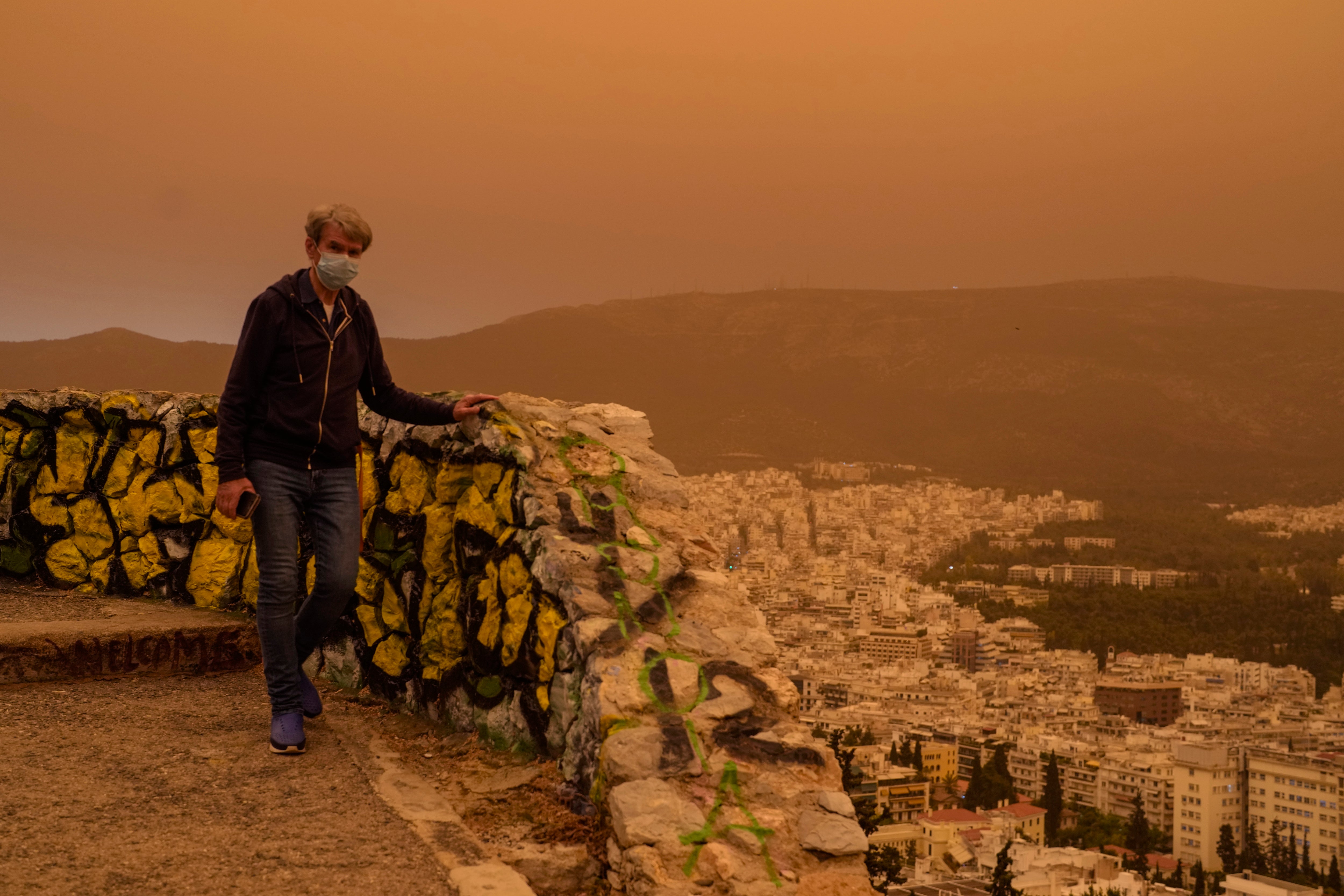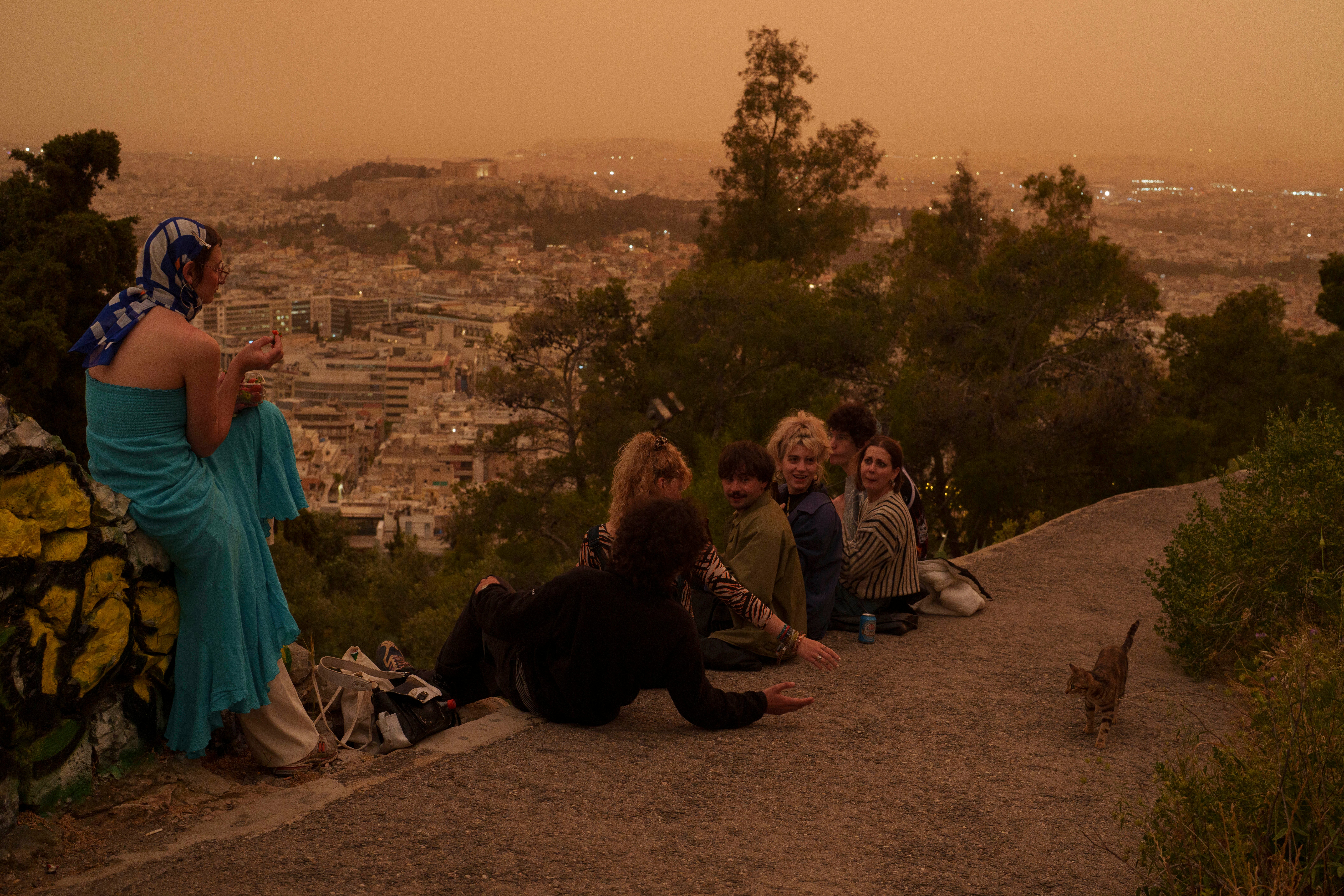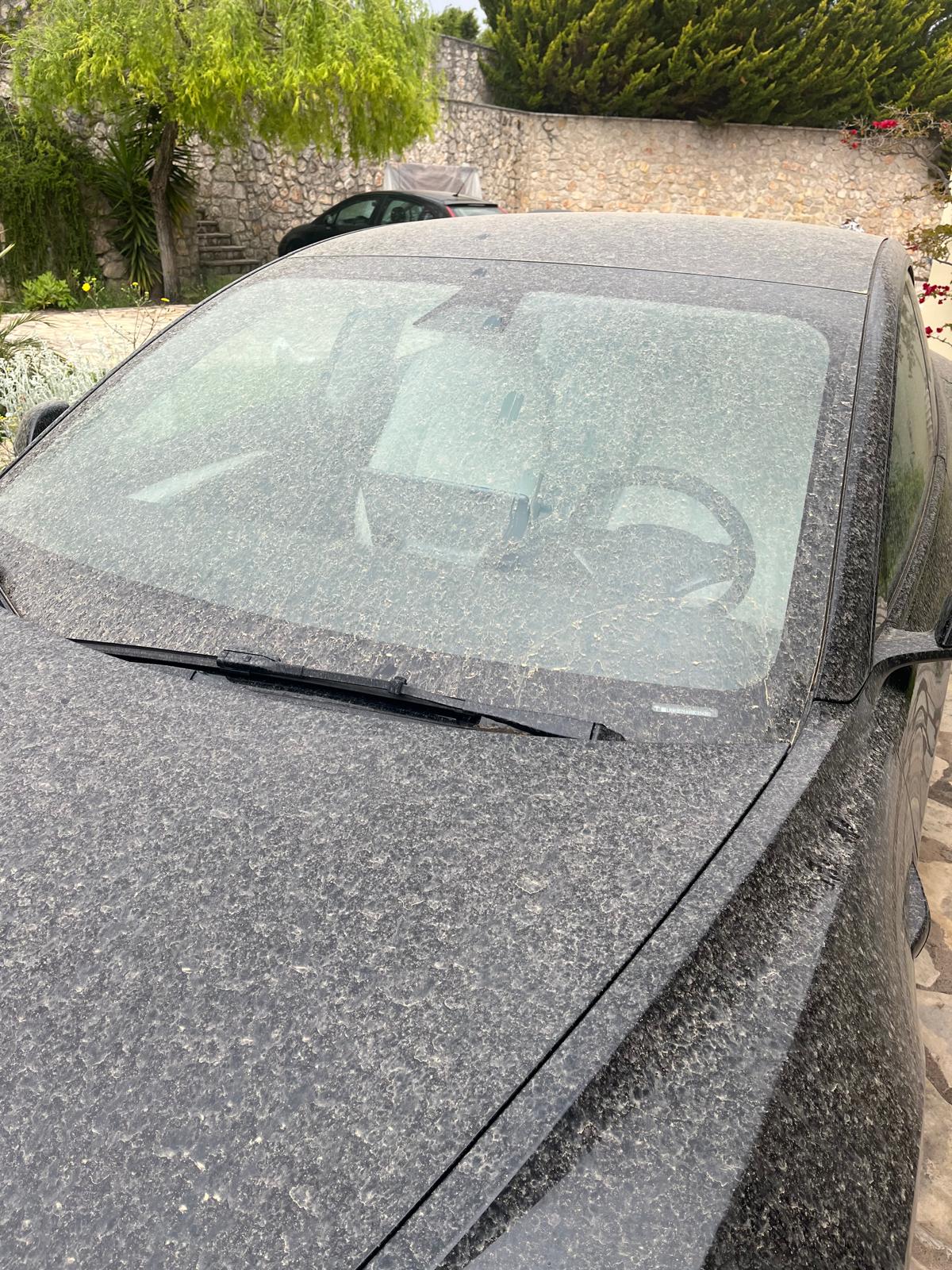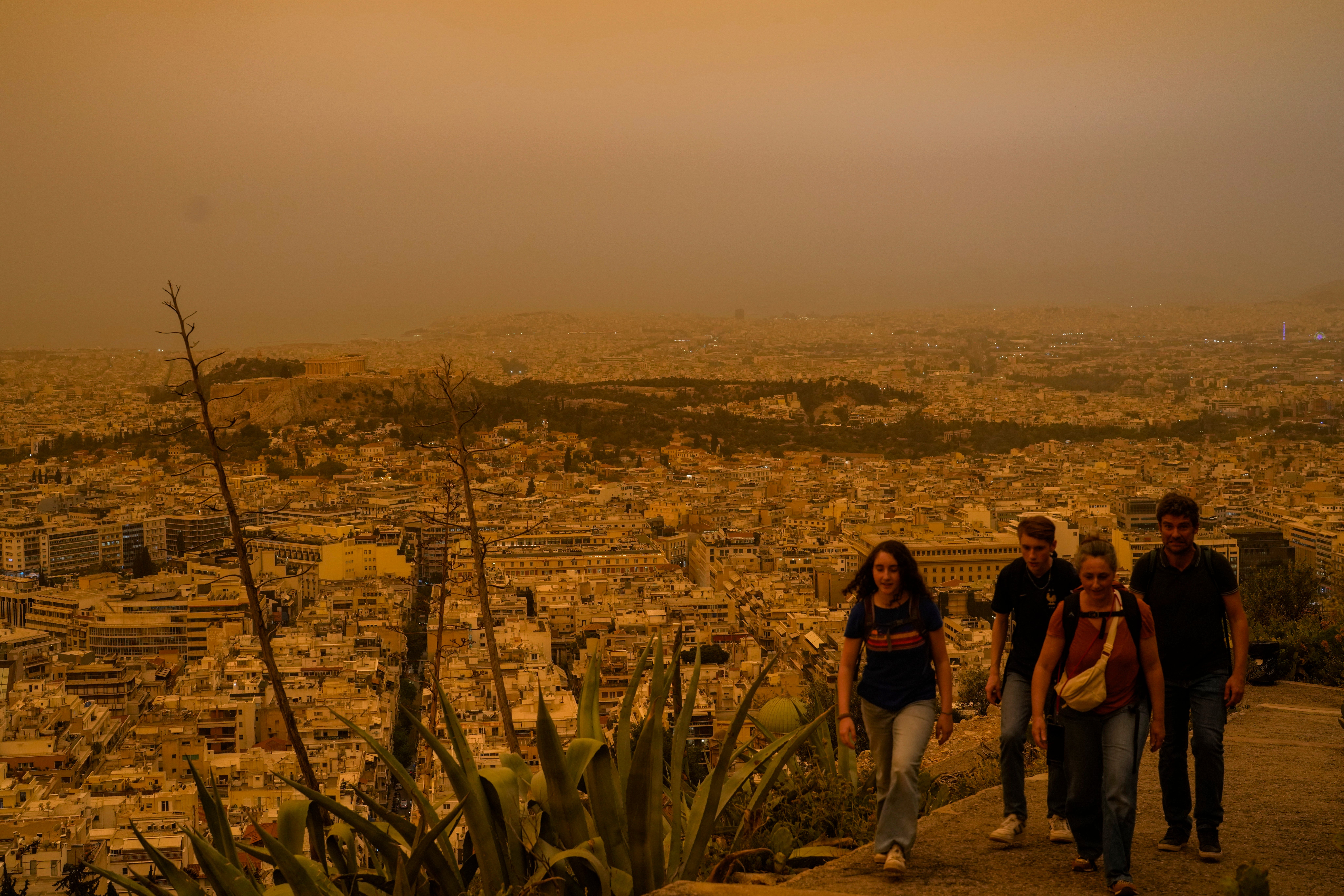Greece’s sky turns orange after bizarre weather phenomenon hits Athens
Strong southerly winds over the past few days have also fanned unseasonal early wildfires in the country’s south

Your support helps us to tell the story
From reproductive rights to climate change to Big Tech, The Independent is on the ground when the story is developing. Whether it's investigating the financials of Elon Musk's pro-Trump PAC or producing our latest documentary, 'The A Word', which shines a light on the American women fighting for reproductive rights, we know how important it is to parse out the facts from the messaging.
At such a critical moment in US history, we need reporters on the ground. Your donation allows us to keep sending journalists to speak to both sides of the story.
The Independent is trusted by Americans across the entire political spectrum. And unlike many other quality news outlets, we choose not to lock Americans out of our reporting and analysis with paywalls. We believe quality journalism should be available to everyone, paid for by those who can afford it.
Your support makes all the difference.Skies over Greece turned an orange hue on Tuesday as dust clouds blown across the Mediterranean Sea from North Africa engulfed the Acropolis and other Athens landmarks.
Social media was awash with orange images of the Greek capital as locals and tourists alike were stunned by the phenomenon.
Strong southerly winds carried the dust from the Sahara Desert, giving the atmosphere of the Greek capital a Martian-like filter in the last hours of daylight.
The skies are predicted to clear on Wednesday as winds shift and move the dust, with temperatures dipping.

On Tuesday, the daily high in parts of the southern island of Crete topped 30 degrees Celsius (86 Fahrenheit), more than 20 degrees C higher than what was registered in much of northern Greece.
Across the country many woke up to find a thick layer of orange dust on their cars and homes.

The strong southerly winds over the past few days have also fanned unseasonal early wildfires in the country's south.
The fire service said on Tuesday evening that a total 25 wildfires broke out across the country in the past 24 hours.
Three people were arrested on the Aegean Sea resort island of Paros on suspicion of accidentally starting a scrub blaze on Monday, it added. No significant damage or injuries were reported, and the fire was quickly contained.
Another blaze that broke out on Crete near a naval base was brought under control on Tuesday.
Greece suffers devastating, and often deadly, forest blazes every summer, and last year the country recorded the European Union's largest wildfire in more than two decades. Persistent drought combined with high spring temperatures has raised fears of a particularly challenging period for firefighters in the coming months.

Large wildfires are already breaking out weeks earlier than expected.
To cope with the crisis, Greece is fast-tracking a 2.1 billion euro ($2.3 billion) program to upgrade its fleet of water tankers and create an artificial intelligence-driven sensor network to detect smoke in the early stages of a fire.
But delivery of the new equipment won’t start until next year, leaving planners to scramble to find alternatives to cut response times.